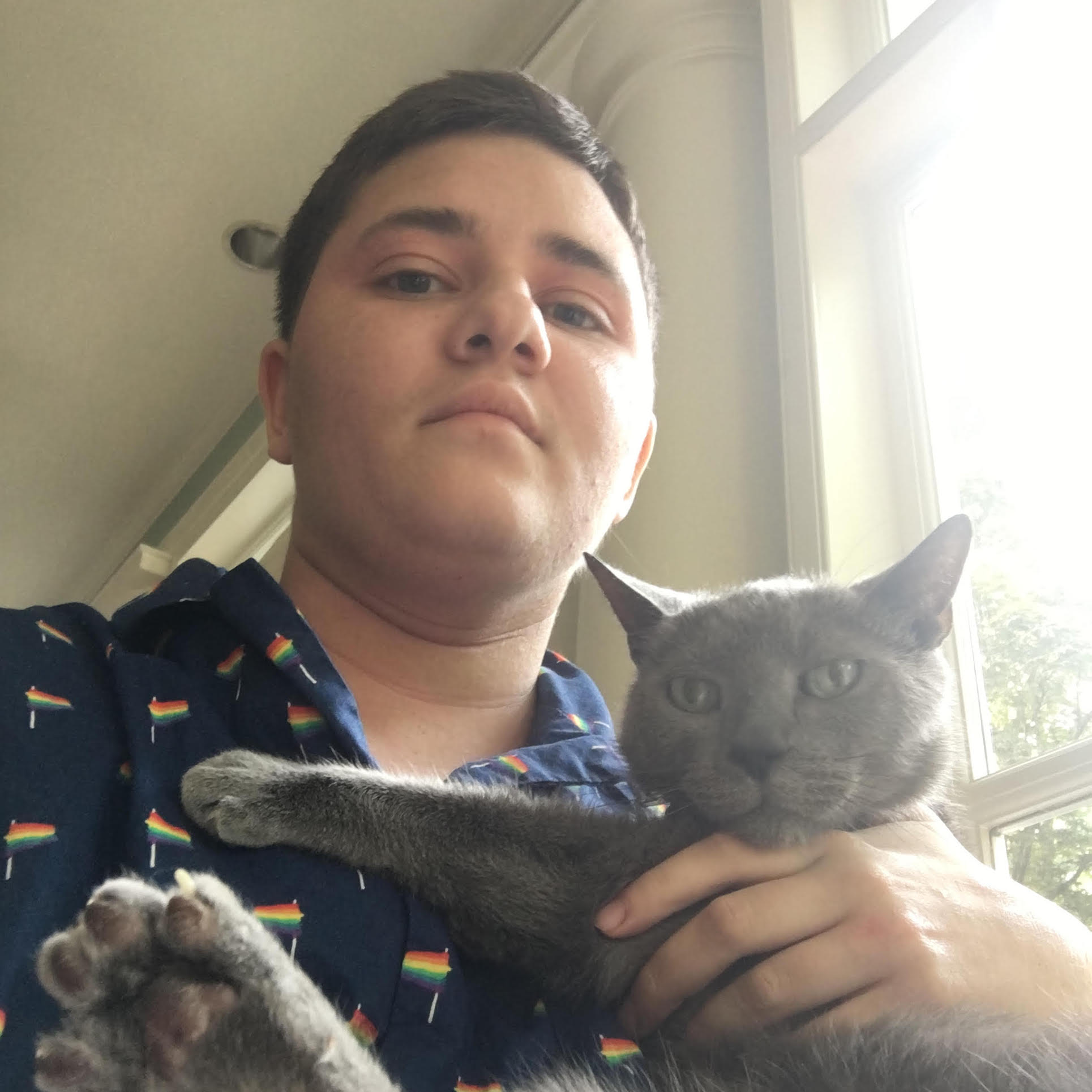For most transgender and non-binary people, being misgendered—meaning being referred to with the wrong gender pronouns—is not a rare occurrence. But no matter how often it happens, it’s inevitably an uncomfortable, and can have lasting emotional effects. For many, professional settings—where there is pressure not to seem difficult or create tension with colleagues—can be one of the most frequent places where this happens.
“Being misgendered makes me feel absolutely invisible and disrespected,” says Imani, a 22-year-old non-binary person living and working in Brooklyn. “I’ve only ever felt safe being out at one job.” New York and California have passed strict laws that prohibit misgendering in the workplace and outline consequences for employees who repeatedly violate this protocol. But that level of protection is relatively rare—there are only 21 states that have even some form of legal protections for LGBTQ workers.
Videos by VICE
The U.S. Equal Employment Opportunity Commission states that discrimination on the basis of “sex” is illegal, and under the Obama Administration, the Department of Justice confirmed that “sex” should include gender identity—which would mean that repeated and intentional misgendering should qualify as illegal discrimination. Under the Trump Administration, however, the DOJ has pivoted its position, arguing that “sex” does not encompass gender. The Supreme Court will likely soon decide which definition is correct—and the conservative majority does not bode well for trans employee protections.
In an attempt to make the workplace safer for transgender employees, some offices across the country have independently implemented practices such as gender neutral bathrooms, gender sensitivity training, and name tags that include people’s preferred pronouns. Despite this, many transgender individuals continue to feel unsafe at work, where power dynamics often make it difficult for employees, especially ones who are lower-level, to speak out.
We asked seven trans and non-binary individuals to share how it feels to be misgendered at work, and how they deal with it.
Le, 20, server at a country club
They/Them
Baltimore, MD

I am a server at a country club, so as you can expect, the clientele is not exactly young, open-minded, or socially informed. It’s easier (not emotionally, but practically) to just present as feminine and use “she” pronouns. It’s uncomfortable and invalidating to be misgendered by my coworkers, especially those who are my age or even my friends. I have my pronouns listed on every social media account I have, and am generally “out” to people my age, whatever that means. The vast majority of my coworkers are straight, cis men, so they already are carrying that implicit power with them, and it’s hard to correct them — especially when they already know and don’t seem to care. I often feel trapped by the way I need to present. We have a uniform and are expected to look professional and it really bothers me how my performed femininity is so expected, particularly by the members of the club. I’ve worked restaurant jobs for almost 5 years now, and in general, it’s not an industry that seems to care about anything like that.
Winnie, 21, work-study graphic designer
They/Them
Toronto, CA

For the past three years, I’ve worked as a work-study student at my university’s sustainability office. I was misgendered at the beginning in my first year, but only because I hadn’t told my supervisors. Once I did, it got a lot better. I didn’t introduce myself to my peers with my pronouns until the second year at orientation, where a new batch of work-study students came in and I’d have a blank slate to tell everyone at once. Thankfully, I don’t interact with many people in my role as a graphic designer, so it’s generally fine and my supervisors are great about it. But once, at an office holiday party, we went to a board game cafe and everyone thought to play Mafia. People kept referring to me with “she/her” pronouns, and by the end of the game I was nearly in tears at what was supposed to be a relaxing, fun work outing. I told them I wanted to sit out because I was being misgendered and people apologized a lot. One person kept asking me if I was okay, but did it in a way that honestly made it feel like it was about him. My supervisor sent me a private email apologizing and promising to do better.
Norah, 21, ice cream shop employee
She/Her
Largo, Florida

I work at an ice cream shop in Florida and have been misgendered at work by customers, coworkers, and by my employer. I came out as transgender a year ago and have since informed my employer and coworkers that I prefer to be called by “she/her/hers.” After being corrected a couple of times, my coworkers and employer got the hang of it. When my boss has misgendered me, I feel particularly frustrated because we have a close relationship and I wish that she could just put a little bit more effort into making me feel welcome in the workplace. However, I am almost always misgendered by customers. One time, a group of four guys came in to order ice cream. They left, but later one of the guys returned with more of his friends. They came in the door, looked at me, and burst out laughing. They said “He’s so f****d up.” I went ahead and served them ice cream. They repeatedly called me “sir” until they left the store.
Kat, 34, chef
They/Them
Los Angeles, CA

I work as a chef, and I am usually the only non-binary/trans person in the restaurant. Some places I’ve worked don’t have gender-neutral bathrooms, so I’ve had to use the women’s one and be subjected to white women asking if they’re in the right bathroom, because I am in this one. It’s uncomfortable to say the least. Most kitchens are also extremely cis-male driven, and so I am called “mama”, “chica”, or “mija”, even when I have stated my gender identity and pronouns. It makes me feel unseen and disregarded. People do their best to not misgender their pets, but queer people have to hear that it’s so hard to use their pronouns. It makes me feel as though my identity is a joke to them or not as important. I was born and raised in Jamaica, one of the most homophobic countries in the world. I often think I rationalize being misgendered based on the fact that I’m able to live in America as opposed to still living in Jamaica. But that within itself is so unfair to LGBTQIA people. We have to compromise so much just to feel and be seen. We have to say “at least” so much while being misgendered and not taken seriously.
Jack, 18, cashier
He/Him
Washington, DC

I was misgendered by a customer when I worked as a cashier at Chick-fil-A one summer. I’m sure there were other times it happened but I remember this one moment in particular because it happened like five times in the same sentence. I was not comfortable being out at that job. Whenever I was misgendered I would just try to rush the interaction so I wouldn’t have to think about it. Being misgendered at work can be hard because you don’t really know the people you’re working for—they may be really nice and supportive, but you just don’t know. So you just kind of have to make this decision: Do I say something and risk getting in trouble or fired, or do I just grin and bear it?
Val, 27 — pet store employee
They/Them
Ontario, Canada

I work at a pet food store franchised by a family consisting of two sisters and one of their partners. The two sisters owned a childhood education facility prior to the pet food store and went to teacher’s college. As a result, one of the sisters feels she can’t use my pronouns because in her mind, “they” is only a plural. I’m misgendered daily by customers, but since they don’t know me, it only makes me uncomfortable and not upset. When one of my bosses misgenders me and refuses to correct herself, it makes me feel frustrated, angry, and small. My usual go-to for correcting people is just to raise a hand and say “they” or “pronouns.” Most of the time it is received well with no backlash, but the one time I tried to correct one of my bosses, I was subjected to an aggressive rant on how she used to be a teacher and she doesn’t believe in using “they/them” for one person and if I won’t let her use “she/her” for me then I’ll have to make do with “he/him.” I haven’t tried to correct her again. With a few exceptions, my workplace is very accommodating. They let me wear my pronoun pin every day so that I have the chance to not be misgendered by our customers, and for that I am grateful.
Imani, 22 — actor, musician
They/Them
Brooklyn, NY
I’ve only felt safe to be out at one job. For the most part, people were great. However, my boss constantly misgendered me, despite us having a really great conversation about my pronouns at the start of my time there. My boss would mess up and sometimes self-correct, but it happened so often that at a certain point you start to ask yourself—what happened to our conversation? Why am I not respected in my place of work? It makes me feel absolutely invisible and disrespected. When people misgender me it’s because they do not see me as I am—a non-binary person. They see me as my assigned gender at birth and are not putting in the effort to change how they perceive me. It’s possible that because I’m an employee or co-worker people don’t find it necessary to make that level of effort, but what a shit way to be! Maybe we won’t have any form of a relationship outside of this place of work, but I deserve respect.
More
From VICE
-

Collage by VICE -

Screenshot: MLMEDIA -

Screenshot: Ubisoft -

Wolf Mattress
